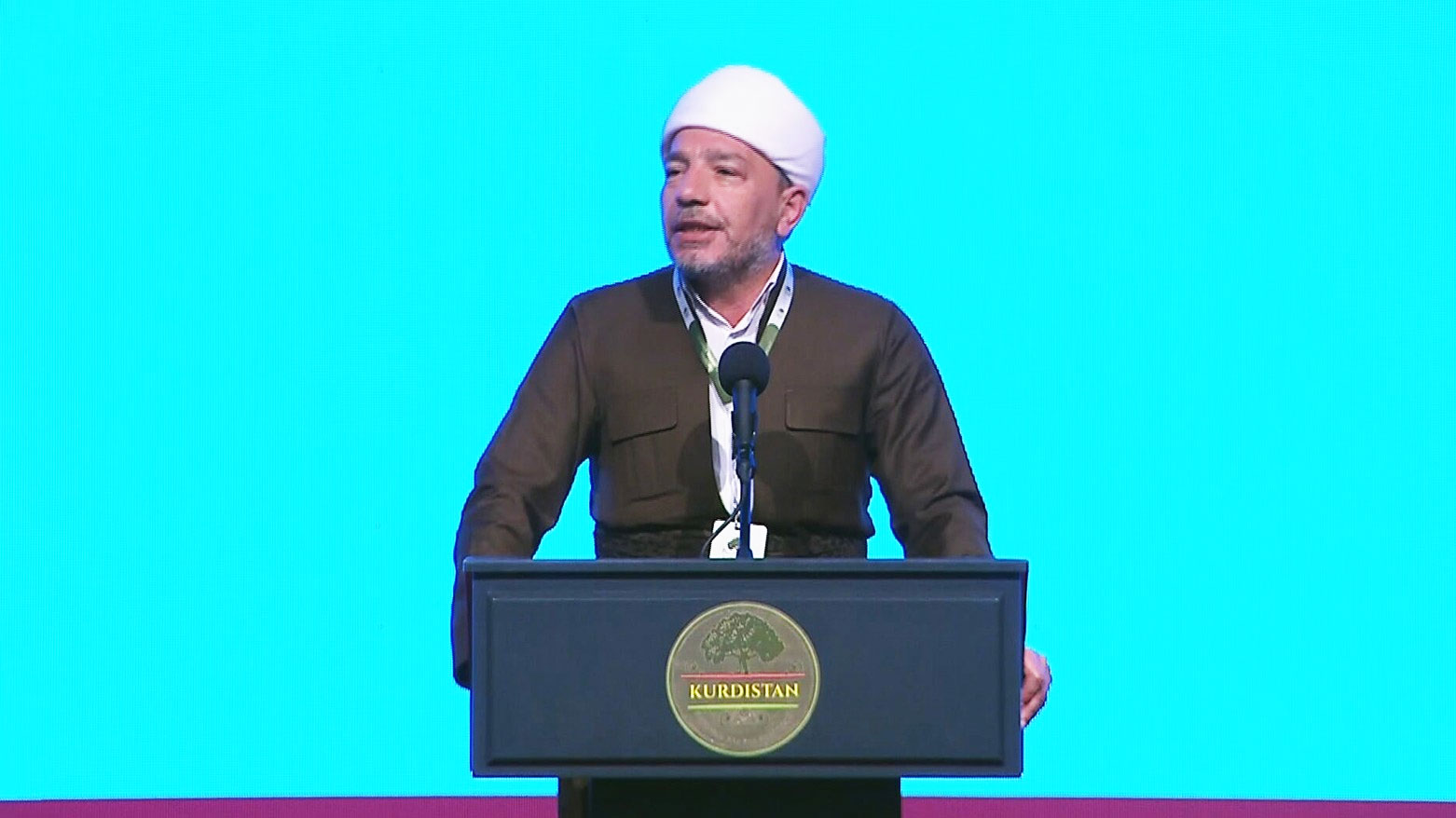Kurdistan’s Model of Coexistence Is Unique in the Middle East, Says Top Islamic Cleric
He attributed this ethos to the enduring influence of the Barzani lineage—citing the roles of Sheikh Abdulsalam Barzani, Sheikh Ahmed Barzani, Mullah Mustafa Barzani, and President Masoud Barzani in embedding the principles of tolerance into the social and political fabric of Kurdish society.

By Ahora Qadi
ERBIL (Kurdistan 24) – Abdullah Waisy, President of the Union of Islamic Scholars in Kurdistan, lauded the Kurdistan Region on Wednesday as the Middle East’s only genuine example of peaceful coexistence, emphasizing that what Kurds have demonstrated in terms of mutual acceptance and religious harmony remains unparalleled both regionally and globally.
Speaking during the National Prayer Breakfast Day held in Erbil under the theme “Toward Unity in Faith,” Waisy called on all communities to safeguard this harmony and expressed deep gratitude for the Kurdish model of interfaith solidarity.
“We must pray for the protection of Kurdistan, and it is our collective duty to uphold and strengthen coexistence—here and across the world,” he told an audience that included President Masoud Barzani, top Iraqi and Kurdish officials, international parliamentarians, and government envoys from the U.S., Europe, and the Middle East.
Mosques turned into shelters: A historical first
Waisy highlighted a defining moment in the Kurdistan Region’s moral legacy during the onslaught of ISIS, recalling how mosques in Duhok province and in the independent administrations of Zakho and Soran were transformed into shelters for displaced Yazidis and Christians fleeing extremist violence.
“In the history of Islam and this region, there is no record of mosques being closed to host non-Muslims. This happened only in Kurdistan,” he declared, underlining the unprecedented nature of the gesture and the profound message of tolerance it conveyed.
From slogans to lived reality
The senior cleric stressed that while many countries reduce coexistence to political slogans, in Kurdistan it is a lived and practiced principle. “When Christians fled central and southern Iraq in 2012, Muslim scholars here staged demonstrations in front of the United Nations office to defend their rights,” he recalled.
This commitment to pluralism, Waisy said, is not incidental but deeply rooted in the teachings of Kurdish religious and national leaders.
Barzani's spiritual legacy
He attributed this ethos to the enduring influence of the Barzani lineage—citing the roles of Sheikh Abdulsalam Barzani, Sheikh Ahmed Barzani, Mullah Mustafa Barzani, and President Masoud Barzani in embedding the principles of tolerance into the social and political fabric of Kurdish society.
“The Peshmerga’s sacrifices in defense of these values were shaped by the guidance of religious leaders and the true message of Islam,” he stated, underscoring the spiritual dimensions of the Kurdish resistance.
A message to the region and beyond
Wednesday’s prayer gathering served not only as a spiritual event but also a diplomatic statement—reinforcing Kurdistan’s commitment to peace, inclusion, and faith-based unity at a time of regional unrest and sectarian division.